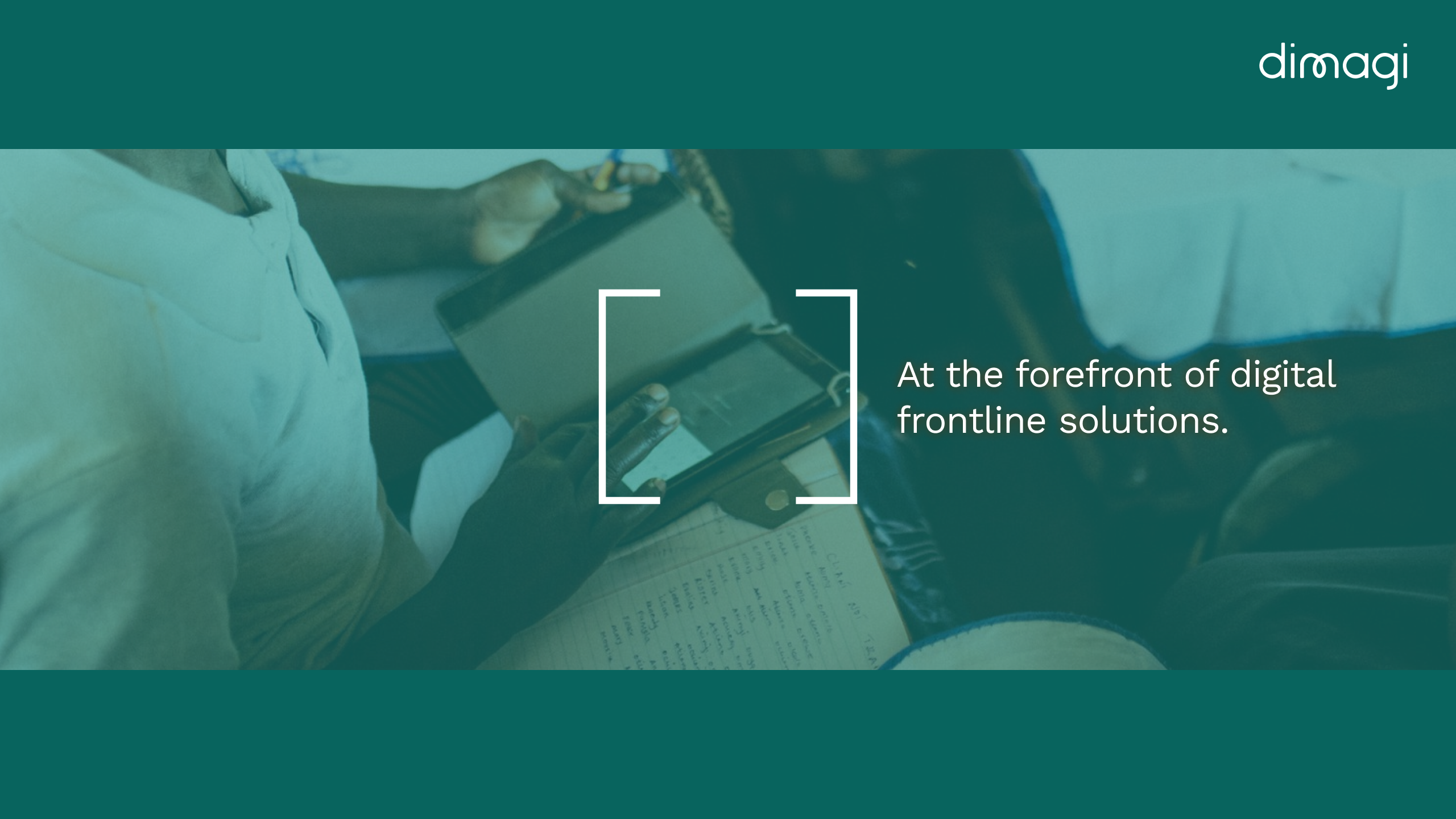

Dimagi, Inc.

Massachusetts, United States
January 2010
Engineering
Service with Minor Environmental Footprint
India,
Senegal,
South Africa,
United States
The spread of mobile phones in the developing world has created an unprecedented opportunity to support service delivery to underserved populations. Dimagi believes that such frontline programs have the potential to improve overall quality of life around the globe. Whether they are providing mothers in rural Bangladesh with prenatal care, or strengthening farmers’ livelihoods with better resources and support, our goal is to develop mobile technology that can improve frontline programs’ service delivery, thus amplifying the benefits to the millions of individuals served. Dimagi has three open source mobile products that support frontline workers in low-resource settings: CommCare, CommConnect, & CommCare Supply Chain. These products support frontline workers by performing case management, decision support, data collection and monitoring, communication and logistics management, thereby strengthening ties between programs’ managers, frontline workers, and the communities they serve.
Overall B Impact Score
Governance 18.3
Governance evaluates a company's overall mission, engagement around its social/environmental impact, ethics, and transparency. This section also evaluates the ability of a company to protect their mission and formally consider stakeholders in decision making through their corporate structure (e.g. benefit corporation) or corporate governing documents.
What is this? A company with an Impact Business Model is intentionally designed to create a specific positive outcome for one of its stakeholders - such as workers, community, environment, or customers.
Workers 35.0
Workers evaluates a company’s contributions to its employees’ financial security, health & safety, wellness, career development, and engagement & satisfaction. In addition, this section recognizes business models designed to benefit workers, such as companies that are at least 40% owned by non-executive employees and those that have workforce development programs to support individuals with barriers to employment.
Community 16.1
Community evaluates a company’s engagement with and impact on the communities in which it operates, hires from, and sources from. Topics include diversity, equity & inclusion, economic impact, civic engagement, charitable giving, and supply chain management. In addition, this section recognizes business models that are designed to address specific community-oriented problems, such as poverty alleviation through fair trade sourcing or distribution via microenterprises, producer cooperative models, locally focused economic development, and formal charitable giving commitments.
Environment 8.9
Environment evaluates a company’s overall environmental management practices as well as its impact on the air, climate, water, land, and biodiversity. This includes the direct impact of a company’s operations and, when applicable its supply chain and distribution channels. This section also recognizes companies with environmentally innovative production processes and those that sell products or services that have a positive environmental impact. Some examples might include products and services that create renewable energy, reduce consumption or waste, conserve land or wildlife, provide less toxic alternatives to the market, or educate people about environmental problems.
Customers 47.8
Customers evaluates a company’s stewardship of its customers through the quality of its products and services, ethical marketing, data privacy and security, and feedback channels. In addition, this section recognizes products or services that are designed to address a particular social problem for or through its customers, such as health or educational products, arts & media products, serving underserved customers/clients, and services that improve the social impact of other businesses or organizations.
What is this? A company with an Impact Business Model is intentionally designed to create a specific positive outcome for one of its stakeholders - such as workers, community, environment, or customers.